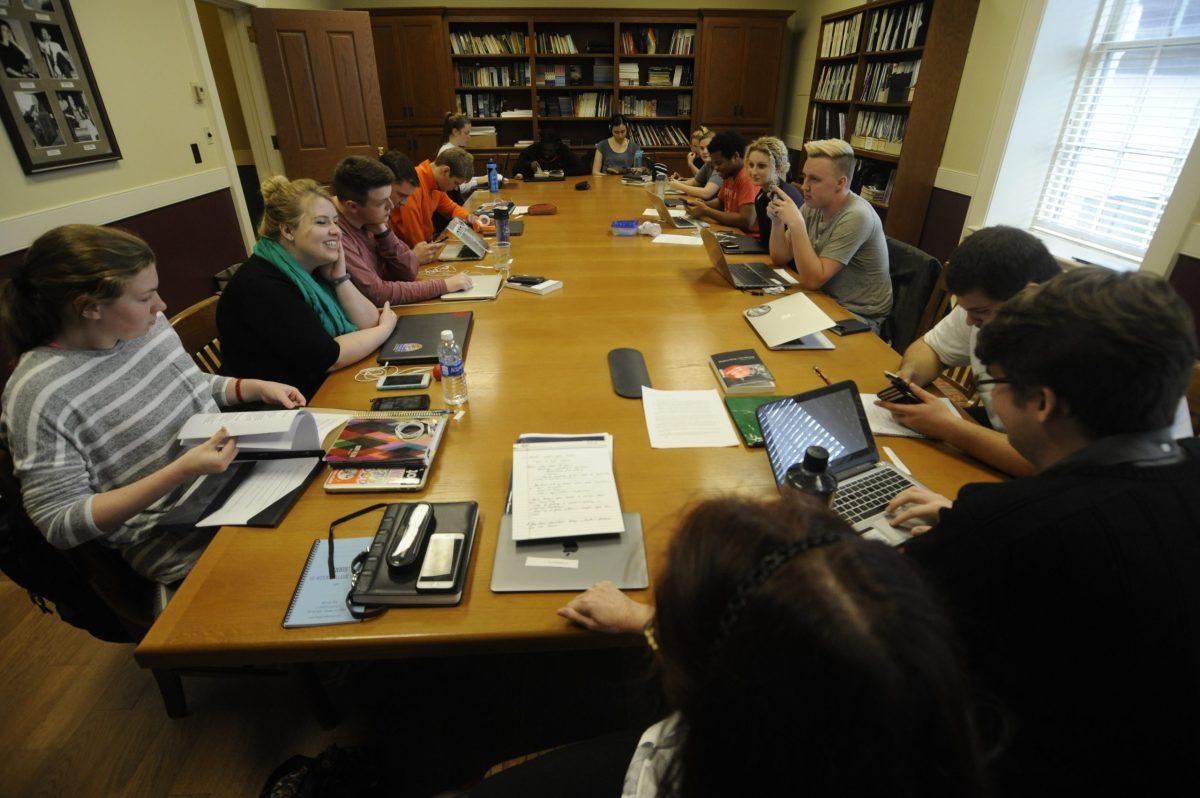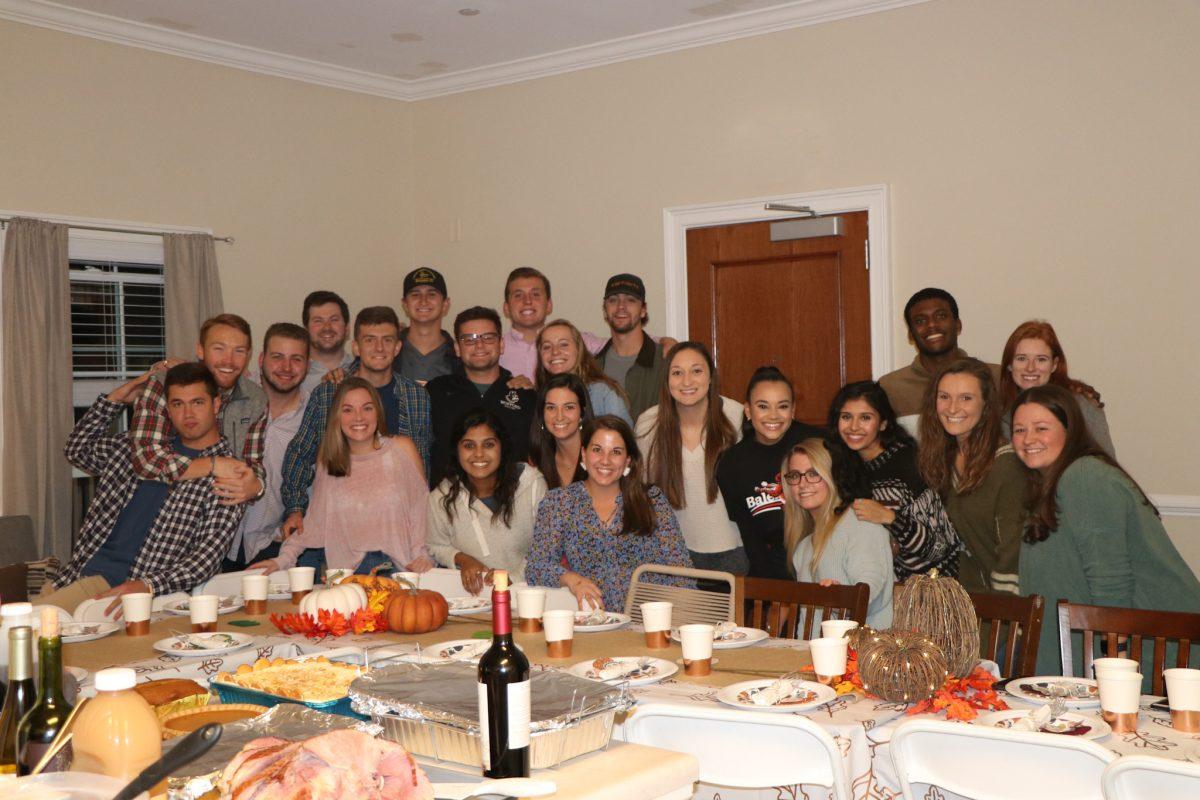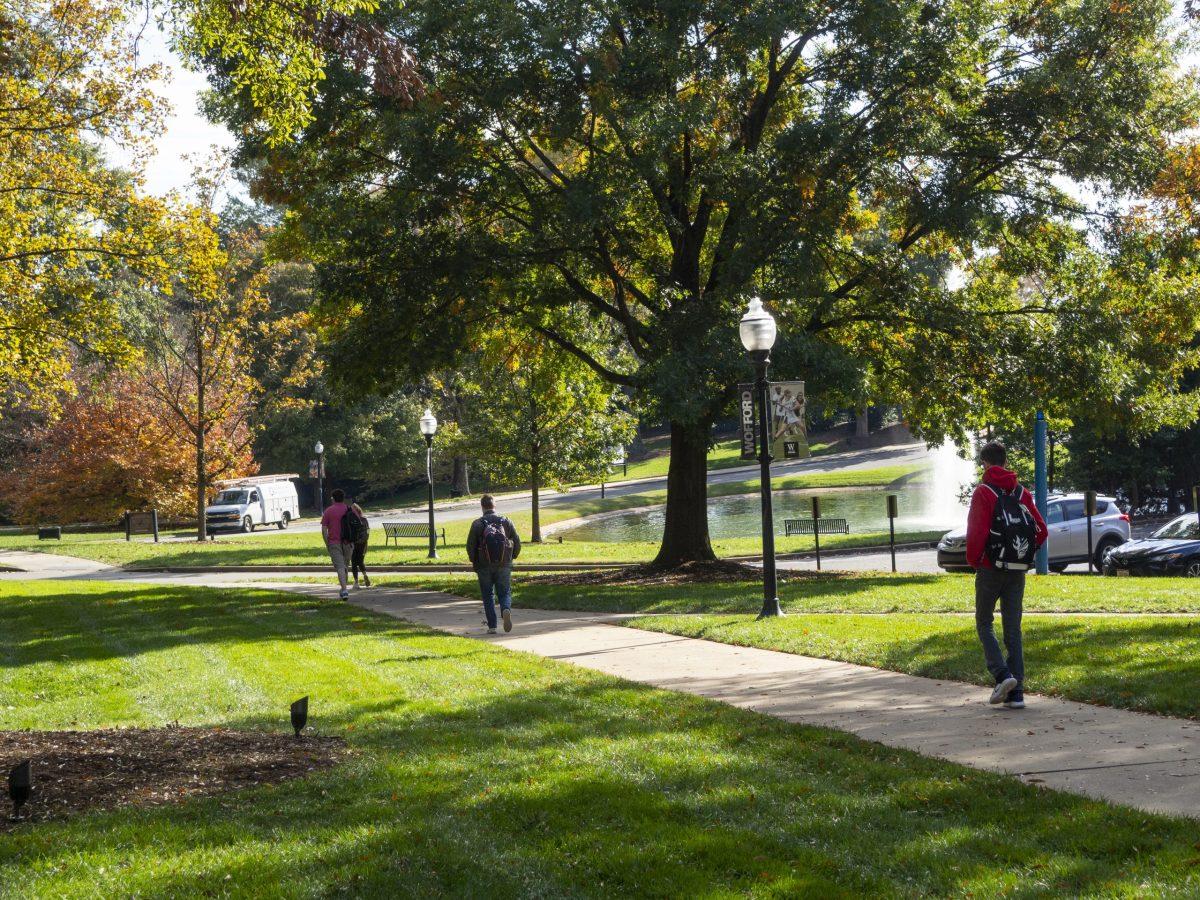Examining the coveted professor-student relationship
Whether you’re a prospective student, a current student, or even a professor, odds are that at some point, you’ve been told about what makes Wofford different from any other college. You’ve seen the small classes, you’ve heard about how accessible professors are, and you may have even eaten with professors before. But just how accessible are Wofford professors to students really?
Senior Glenn Niles III chimed in on this pressing question, saying that he’s “absolutely certain, positive, absolutely sure that I’m close with my professors here—the ones who like me and the ones who dislike me.” However, despite all of that, Niles did also acknowledge that, while he is personally more accessible to his professors, he cannot say that for everyone here.
“I actually think one of the best parts of the job is the kind of close mentoring relationship you get to have,” added Dr. Kimberly Hall. “I’ve certainly felt that more the longer I’ve been here. This is my fourth year, so I’ve known some students their entire time at Wofford.”
So why is it that Wofford pushes this feature in particular over so many others? Niles says that it is “one thing that Wofford has going for itself that for every faculty member there’s 10 to 15 students,” which makes it easier for teachers to know students personally and by name. Dr. Hall, however, having had experience teaching at larger universities, says that “people want to know what makes Wofford different and what’s going to make the Wofford experience different than a state school or a large university.”
It’s no secret that professors generally make themselves available by notifying students of their office hours and working by appointment as well as being available via e-mail, but both Niles and Dr. Hall agree that the responsibility of fostering long-term relationships with professors falls upon the students. Niles believes that he has benefitted from having his professors know him as an individual and “develop [him] to be a better person.”
Hall said, “when a student’s in my class, I absolutely think it’s my job to make sure that I’m mentoring them and helping them through that class, but if you want a long-term relationship, then that really has to come from the student.”
Another contributing factor to the supposed closeness of professors and students as Wofford is, as Dr. Hall puts it, the repetition that comes with seeing students much more often. At larger universities, she says, she would see students maybe once a semester because of how spread out everything was. However, at Wofford, because of smaller classes, opportunities for capstone projects and independent study, students seem to always be in positions where they can work with professors on a more personal level.
The general impression that Wofford gives off seems to be a very warm and inviting one. Wofford encourages students to always seek out their professors, standing by its claim that students and professors are close with one another. According to Dr. Hall, this claim is valid and holds up compared to the larger university experience. However, it ultimately falls upon the student to want those long-term relationships and to start building them early so that they can always have a reliable resource down the road.
“I do think that if students are thinking about coming to Wofford,” says Dr. Hall, “if they value [being close with professors], then that’s a real benefit of being here, and one of the things that they’ve shown to assist students after graduation is [having developed] strong mentoring relationships [while in college].”
No matter how deep you are into your Wofford journey, the general advice here is to take advantage of the close proximity Wofford provides while you can. This includes both your professors and peers because, as Glenn Niles says, “if we don’t have those close relationships with our professors, how can we ask them for recommendations for our future?”


































